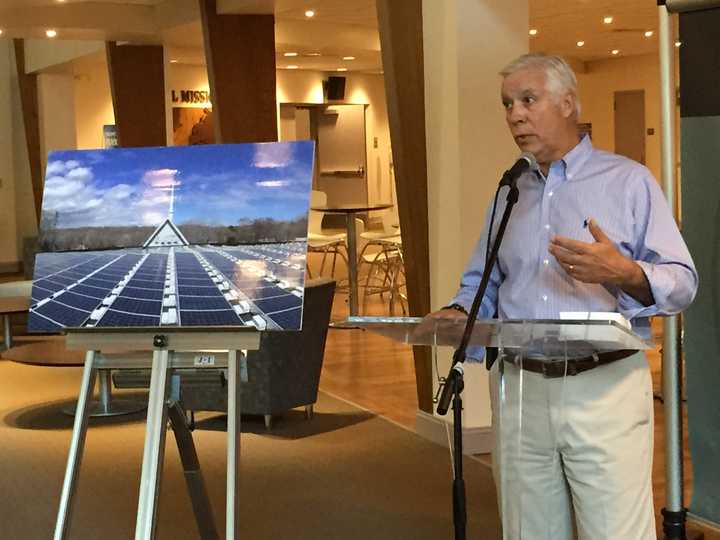The church and officials from SunLight General Capital, which financed the project, celebrated the completion of construction at a ceremony Tuesday morning.
Church Executive Director Ken Brix said the project afforded the church the opportunity to be “good stewards of the environment.” When they built the church — their new home was completed last year — they looked for ways to be environmentally friendly.
The solar panels fit with the church’s eco-friendly mission, offsetting 89 acres of new forest each year, emissions from 342 passenger vehicles over one year or the consumption of 224 American homes in one year, according to a fact sheet handed out by SunLight.
SunLight lauded the economic effects of the panel.
“This solar system will save tens of thousands of dollars," said Noel Lafayette of Weston-based SHR Energy Management, which developed the project from inception. “The economics of it is just good business.”
Bill Zachary said the church did not pay directly for the solar panels. SunLight financed the project and, in return, the church agreed to purchase all of the electricity generated by the system under a long-term Power Purchase Agreement.
But the church can sell excess energy back to the power grid.
“Their energy meter would actually go backward,” he said.
However, Zachary noted that utilities don’t allow owners of solar panels to sell excessive amounts of energy back to the grid. The panels are designed to carry the load of about 85 percent of a property’s usage.
The church will pay less for power with the contract than if it were to buy that power from a utility, Zachary said. The contract will act as a hedge for the church, he said.
The cost of energy will likely rise, he said, and the contract locks the church in a price that would increase slightly over time.
The church project is unique, Zachary said, because New England churches often have steeples. However, the Black Rock church was well suited for panels, he said, because its new roof is mostly flat.
“It’s rooftops like these where they can best be deployed,” said Stacey Hughes of SunLight.
Click here to follow Daily Voice Fairfield and receive free news updates.

